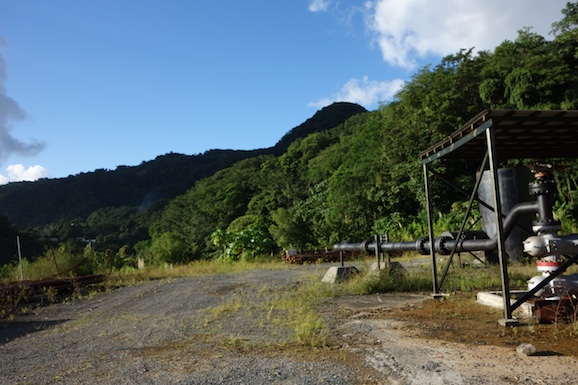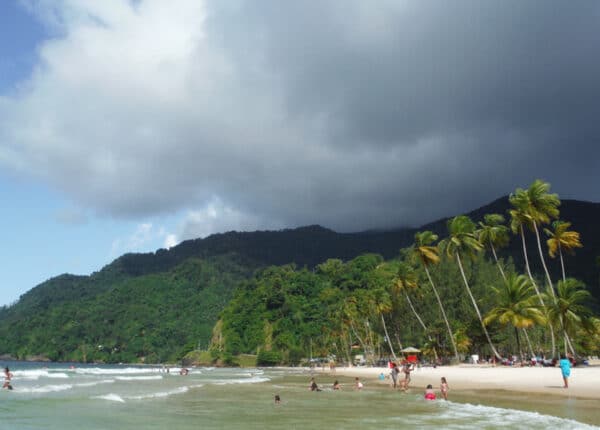Time For Caribbean Region to “Attack” High Energy Costs
Above: geothermal work in Dominica (Caribbean Journal photo)
By the Caribbean Journal staff
It’s time for a frontal “attack” on high energy costs in the Caribbean region, according to Dr Warren Smith, president of the Caribbean Development Bank.
Smith, who was speaking at the 44th Annual Meeting of the of the Board of Governors of the Caribbean Development Bank this week in Guyana, said dealing with high energy costs was crucial if the Caribbean’s competitiveness landscape was to be addressed.
“The high price of electricity is a major source of our region’s uncompetitiveness, and of our vulnerability to external shocks,” Smith said. “We can increase our energy independence substantially; reduce the cost of energy; and in the process, create a whole new industry based on a new paradigm.”
The CDB president said that the macroeconomic impact of the high cost of imported fuel and the “consequential high electricity price” were reflected in what he saw as “deteriorating performance indicators” in most bank member states.
“High levels of debt to GDP and depletion of foreign reserves are directly related to this dependence on imported oil. High electricity prices erode the competitiveness of the regional economies and, therefore, their ability to earn the required foreign exchange to pay for imports, including oil,” he said. “Unless we can substantially reduce energy costs, we will not succeed in improving our competitiveness and reducing our vulnerability to external shocks.”
But the region is not energy poor, he said, pointing to the potential for green energy development across the region.
“Guyana alone has enough renewable energy potential, mainly in the form of hydro-power to meet all of its electricity requirements for the foreseeable future; supply all of the needs of immediate neighbours, Grenada and Trinidad and Tobago; and still have enough left over to sell to neighbouring Brazil,” he said. “The situation is similar for Suriname.”
He also pointed to countries like Dominica, Montserrat, Grenada, St Kitts and Nevis, St Lucia and St Vincent and the Grenadines, all of which have the potential to generate their entire load-based electrical needs from geothermal energy.
And undersea cables could allow these countries to exploit their “relatively large geothermal resources” to export to neighbouring countries he said.







